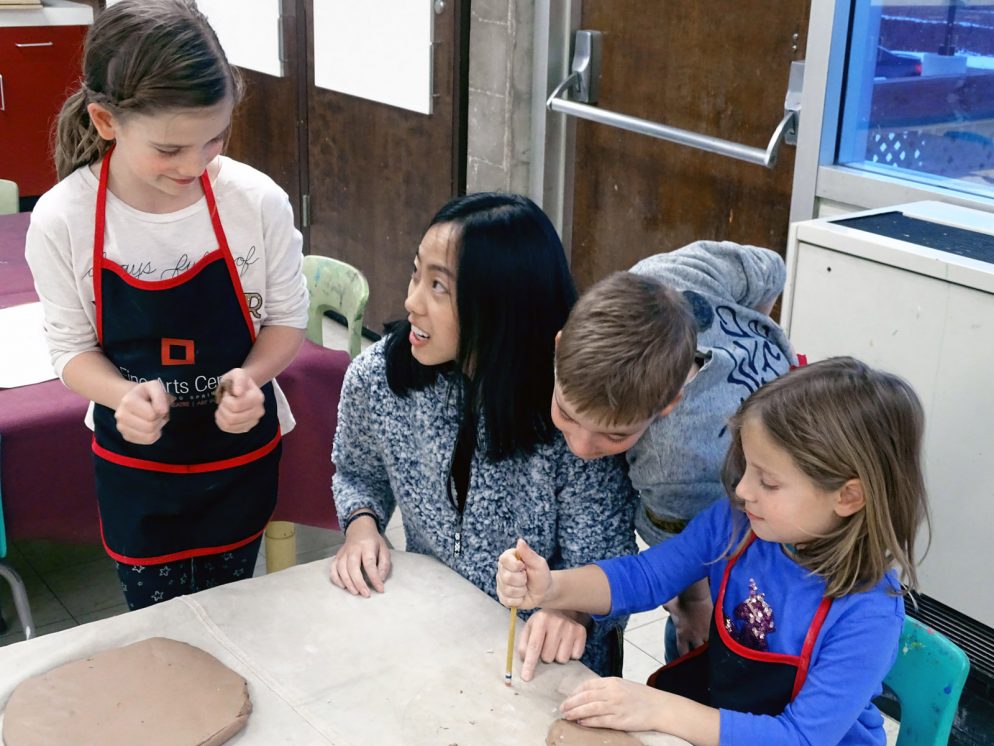A “messy collision between the theory and the practice of teaching community-based studio arts” had seven students wheel-throwing, sculpting, painting, and making collages during a 10-day Half-Block course, Art Education and Learning Laboratory.
“We practiced how to identify, and fill, the gaps between what a student already knows and what they are about to learn,” says Jeremiah Houck, assistant director of the Bemis School of Art at the Colorado Springs Fine Arts Center at Colorado College. Houck co-taught the course with Tara Thomas, director of Bemis School of Art. “Our students worked hard on the thought processes necessary to teach people how to both make things and create art.”
Developing a premier art educator program that focuses on innovation in teaching and learning through arts integration is a recommendation in the FAC’s strategic plan for the Bemis School of Art.
Houck, Thomas, and Mike Taber, professor of education and chair of the Department of Education, developed the dynamic Half-Block course to provide an early arts education experience closely tied to the vision, mission, and programming at Bemis School of Art. “We wanted undergraduate students to develop a better understanding of the important role of education in informal educational contexts,” says Taber. The goal was to get CC students excited about arts education. “I am hopeful students will consider art teaching as a logical career choice, whether that be formally through our Master of Arts in Teaching or K-12 art program, or informally through becoming an education minor and continuing to work in schools’ art programs, including Bemis,” Taber says.
The CC students developed curriculum and lesson plans to pass on their new and/or improved studio arts skills to the children of Colorado Springs. “Whether people are creating teapots from clay, or creating their own concepts of morality, learning how to teach the skills needed to draw, paint, and sculpt bestows an infinitely large range of tools that can be used in each aspect of life during and after college,” Houck says.
The class operated under the premise that because all parts of a society are constructed, learning how to construct things is a transferable, valuable skill.
This course marks progress made throughout the 2018-19 academic year toward achieving the goals laid out in the college’s strategic plan, “Building on the Block.”
